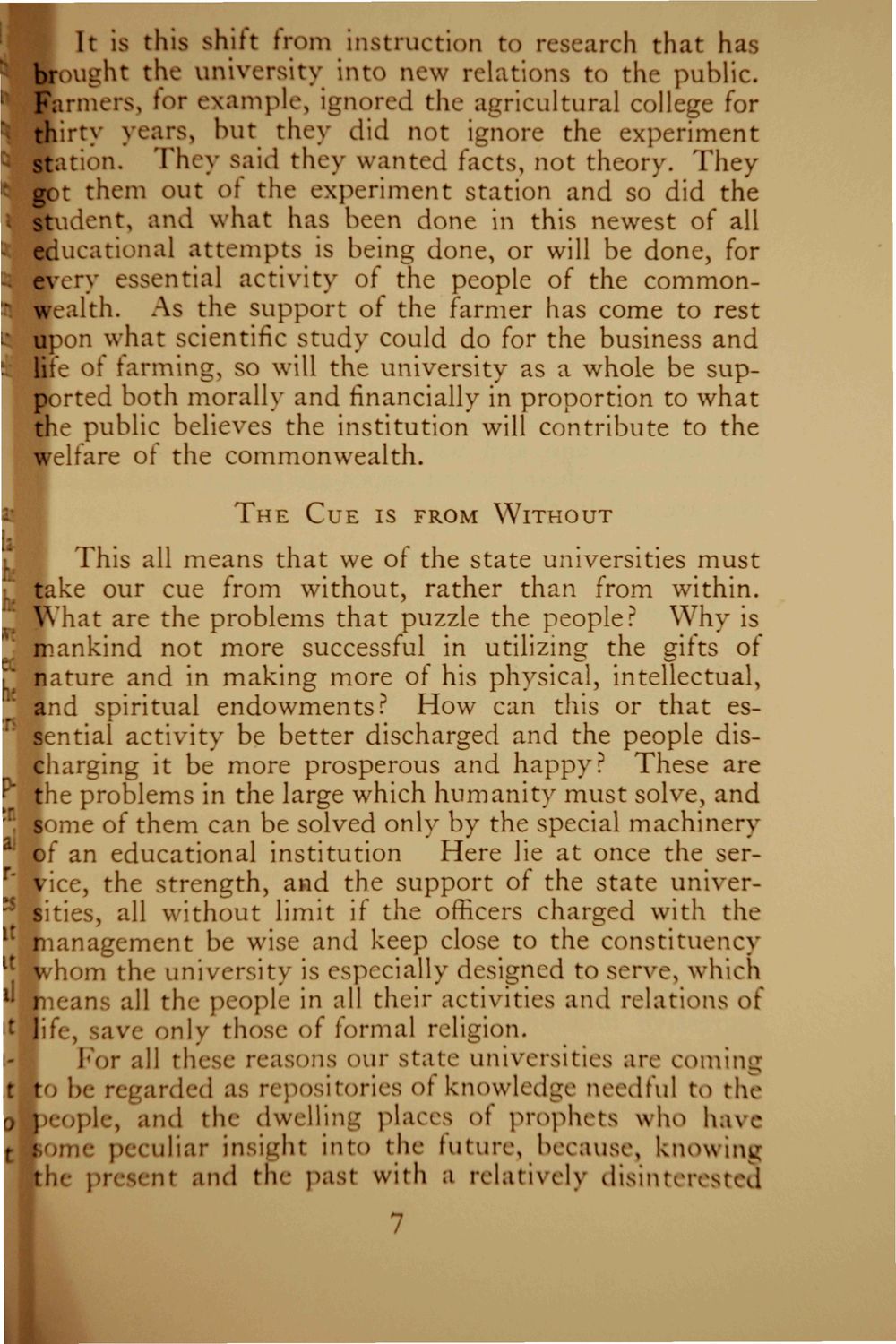| |
| |
Caption: Commencement - 1922
This is a reduced-resolution page image for fast online browsing.

EXTRACTED TEXT FROM PAGE:
It is this shift from instruction to research that has brought the university into new relations to the public. 1 1 irmer , tor example, ignored the agricultural college for thirtv years, hut they did not ignore the experiment station. They said they wanted facts, not theory. They got them out of the experiment station and so did the Student, and what has been done in this newest of all • e d u c a t i o n a l attempts is being done, or will be done, for - every essential activity of the people of the commonwealth. As the support of the farmer has come to rest upon what scientific study could do for the business and • life of farming, so will the university as a whole be supported both morally and financially in proportion to what the public believes the institution will contribute to the welfare ot the commonwealth. T H E C U E IS FROM W I T H O U T ' r * ~ lt a " ^ This all means that we ot the state universities must take our cue from without, rather than from within. What are the problems that puzzle the people? Why is mankind not more successful in utilizing the gifts ot nature and in making more of his physical, intellectual, and spiritual endowments? How can this or that essential activity be better discharged and the people discharging it be more prosperous and happy? These are the problems in the large which humanity must solve, and some of them can be solved only by the special machinery of an educational institution Here lie at once the service, the strength, and the support of the state universities, all without limit if the officers charged with the management be wise and keep close to the constituency whom the university is especially designed to serve, which means all the people in nil their aetivities and relations ot life, jave only those of formal religion. i- For all tin rea >ns our state universities are comin t to be r< jarded as repositories of knowledge needful to the 0 ] le, and the dwelling places of prophets who have : nc peculiar insight into the future, In mse, knowing the pr eni and the past with a relatively disinterested 7
| |